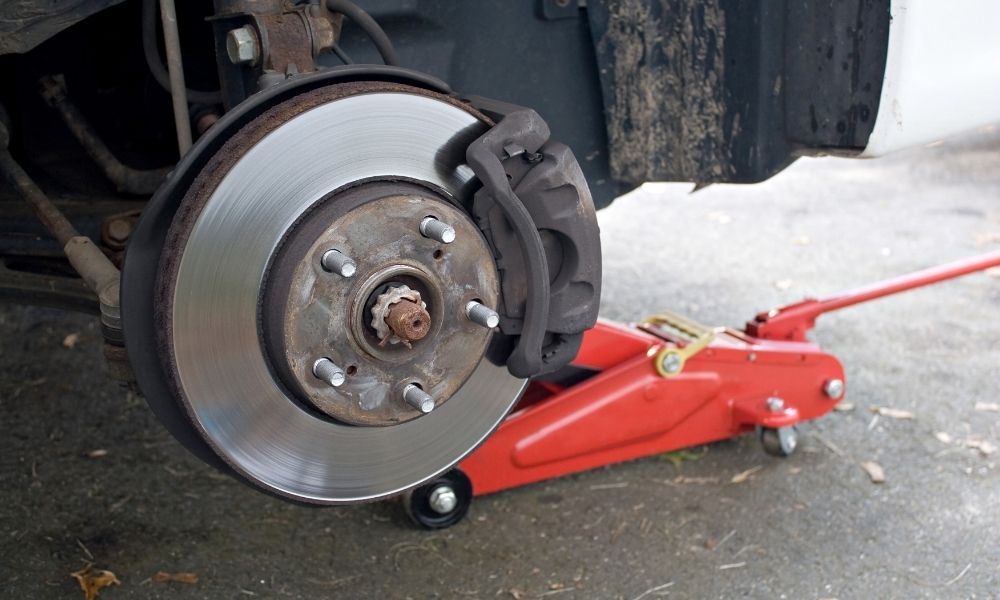
Rotors are the metal discs that attach to the wheel assembly in your car. Disc brakes work with a system of calipers and pads that press on the discs when the driver depresses the brake pedal, which causes friction that slows the rotation of the disc. This is how rotors affect your wheels most directly, by forcing them to stop rotating and bringing the car to a stop. Calipers hold the pads, creating a kind of rotor and brake pad sandwich, squeezing the rotor with the brake pads on either side until it stops turning. Damaged rotors can affect your wheels and jeopardize your safety. But understanding how rotors affect your wheels can help you spot potential problems before they happen.
Bad brakes and rotors go hand in hand. Worn brake pads can cause grooves on the rotors. Rotors should have smooth surfaces for even, safe braking. Squealing, squeaking, and grinding noises when you brake are signs that your brake pads are failing and are so worn that the calipers are grinding directly on the rotors, causing further damage. Grooved rotors that are still thick enough can be machined to smooth them out, but they will still be exposed to heat that can cause warping over time. It may be smarter to just go ahead and replace the rotors, especially if you have allowed your brake pads to wear down to the point where they create grinding noise. The noise indicates your rotors are probably damaged.
Bad rotors can cause brake failure. Friction causes heat, and rotors endure a lot of heat that can eventually warp them. Warped rotors can create intermittent brake failure. You’ll brake and think you are gliding to a stop, when suddenly you feel the brakes stop grabbing the road, putting you at risk of rear-ending the car in front of you.
When the pads and rotors aren’t working together properly, because either or both of them are worn or damaged, you may find you have to press harder or pump your brake pedal to get the car to stop. The damaged parts aren’t exerting enough friction to get the rotor to stop at your usual distance. This calls for a trip to the shop to assess how much life is left in your pads and rotors if any. When you have your brakes replaced or rotated, it’s also a good idea to ask the mechanic if rotating the rotors will be helpful, especially if they’re warped or smooth.
Bad rotors also cause vibration. Usually, you feel this vibration in the brake pedal, but rotors are attached to the same mount or spindle as your wheels. Vibration can travel through the calipers from the rotors and affect your wheels, and ultimately, you’ll feel a vibration in the steering wheel. That vibration may make you think there is something wrong with the wheel itself, when, in fact, the rotor is the culprit.
On the other hand, bad wheel bearings can make a grinding or rattling sound that accuses innocent brakes of failing. Any metallic grinding, rattling, or squealing sound should be checked out by a qualified mechanic.
Knowing how to spot damaged rotors can help you correct diagnosis any odd symptoms your car could be exhibiting. Tire wear, on the other hand, is more often a matter of misalignment, imbalance, improper torque, or simply age and driving conditions. Wheel damage, like dents and cracks, can affect tires and safety. When you get your brakes checked, ask about the condition of your rims. Whether you’re driving on 2014 Toyota Corolla rims, a different make, or newer model, your wheel’s condition is as important as your brake’s.


